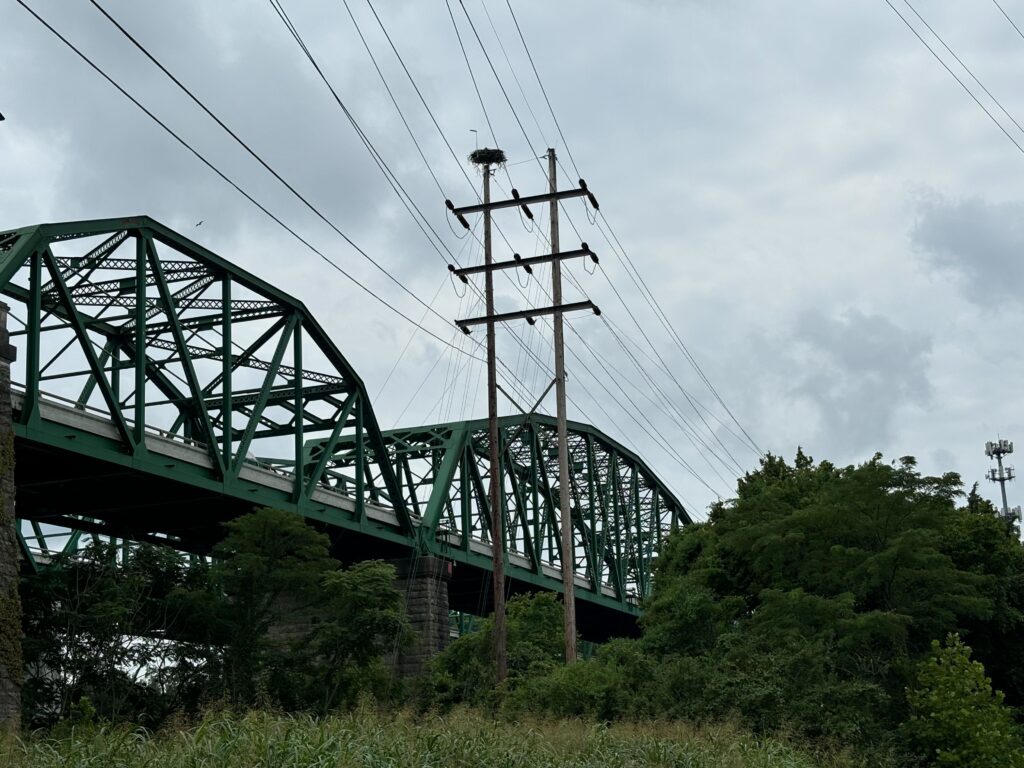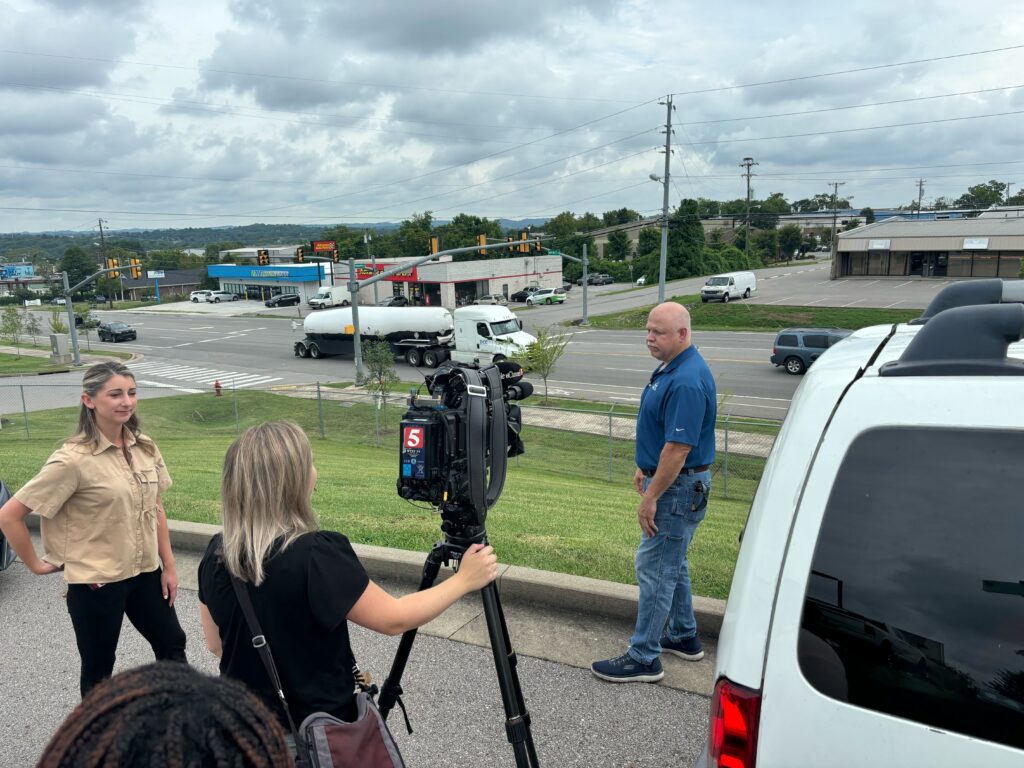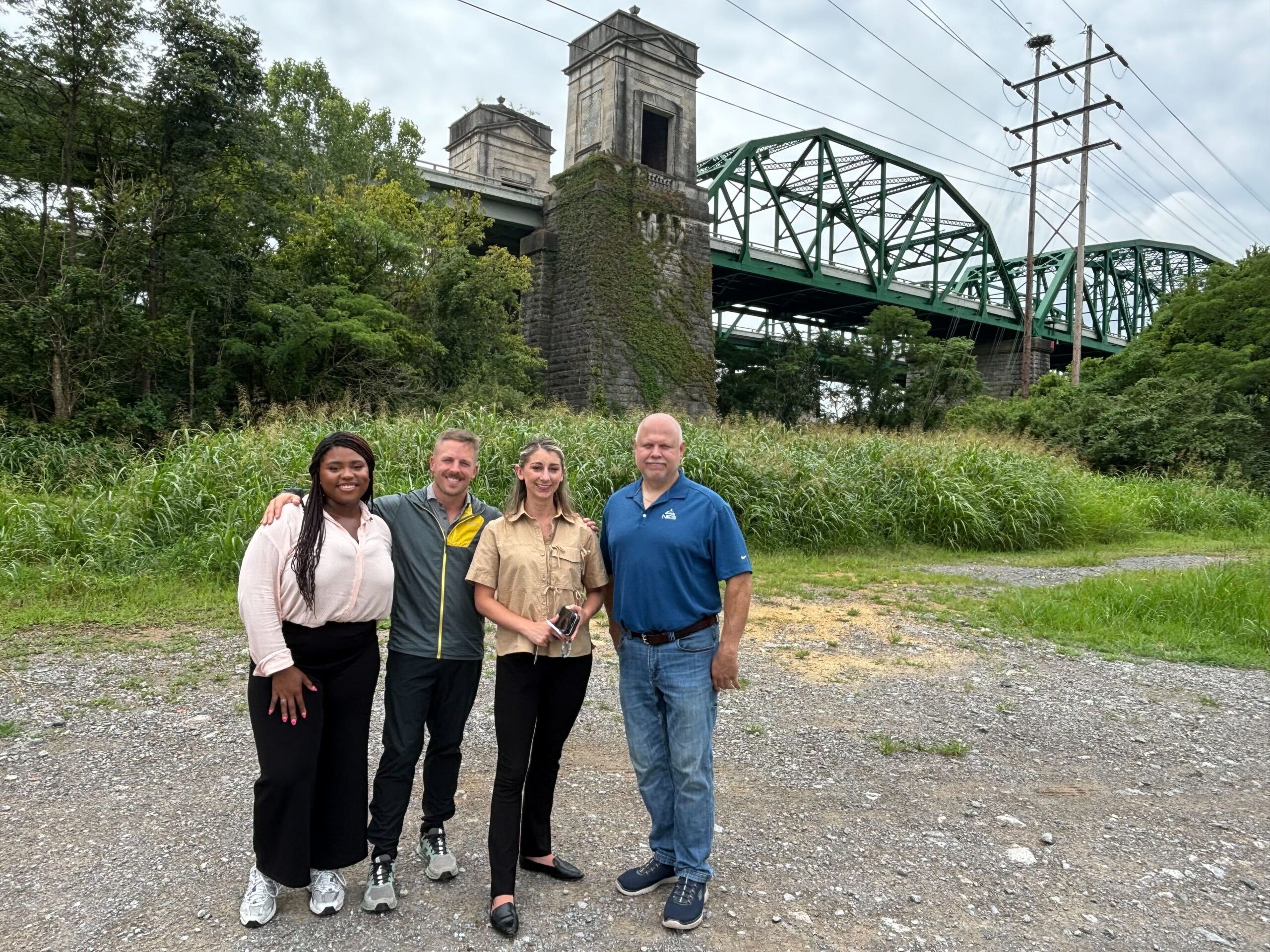Protecting Middle Tennessee’s wildlife is one of NES’ top priorities when working to ensure safety and reliability for all customers. NES, the Tennessee Wildlife Resource Agency (TWRA) and the U.S. Fish and Wildlife Service have partnered to create best practices, preventative measures and mitigation strategies that will help preserve Tennessee wildlife and lessen the likelihood of wildlife fatalities.
Anthony Brewer, Principal Associate Engineer at NES, was recently featured on NewsChannel 5 where he explained how the utility protects birds of prey by manipulating its infrastructure to better accommodate wildlife that comes in contact with NES equipment, like ospreys. The osprey is historically known as a sea hawk, river hawk, or fish hawk who eats fish with a cosmopolitan range.
Anthony and reporter Hannah McDonald scaled Riverside Golf Links and the North Service Center on Myatt Drive, where osprey nests occupied power poles at both locations. Anthony showed Hannah how NES was able to install a perch onto the existing power poles, allowing the birds of prey to better scope their environments while hunting for food. In some cases, lines are de-energized to ensure the safety of wildlife on or near electrical equipment.
Ospreys creating nests on NES equipment is very common. The utility gets about 5 calls a year about ospreys interfering with NES equipment, but ospreys aren’t the only form of wildlife that come in contact with NES infrastructure. In addition to ospreys, NES helps save a number of different species, including squirrels, raccoons, bald eagles, hawks or any bird of prey or wildlife that fly or move along power lines. Many animal interactions with power lines happen near bodies of water, and an abundance of ospreys can be found around the Cumberland River near Briley Parkway and Vietnam Vets Parkway.
When NES receives calls about wildlife interference resulting in a fatality, field crews are notified immediately and are dispatched to the scene to investigate.
Watch the full NewsChannel 5 interview here.


